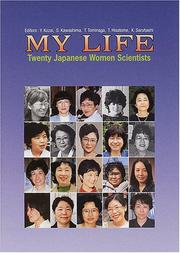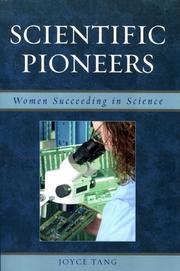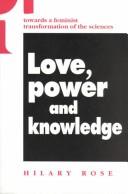| Listing 1 - 10 of 178 | << page >> |
Sort by
|
Book
ISBN: 9780197574751 0197574750 Year: 2023 Publisher: New York (N.Y.): Oxford University Press,
Abstract | Keywords | Export | Availability | Bookmark
 Loading...
Loading...Choose an application
- Reference Manager
- EndNote
- RefWorks (Direct export to RefWorks)
"Astronomy was the earliest science in which women's participation has been recorded. Enheduanna, the Mezopotanian priestess around 2350 BCE monitored the stars and Hypathia in the fourth century is especially famous. Women astronomers such as Sophia Brahe, Maria Cunitz, Elisabetha Hevelius, Maria Margaretha Kirch, and Caroline Herschel often worked alongside family members, husbands or brothers. The next generations were more independent, of them, Mary Somerville, Maria Mitchell, Williamina Fleming, and Nancy Grace Roman are mentioned. Vera C. Rubin had revolutionary ideas about the black holes whose real significance is recognized today. Jocelyn Bell Burnell helped in the discovery of pulsars for which her professor received the Nobel Prize. France A. Cordova was elevated to various top administrative positions. Finally, the astronomer Andrea M. Ghez received a share of the physics Nobel Prize for her work on black holes"--

ISBN: 4753661814 Year: 2001 Publisher: Tokyo : Uchida Rokakuho,
Abstract | Keywords | Export | Availability | Bookmark
 Loading...
Loading...Choose an application
- Reference Manager
- EndNote
- RefWorks (Direct export to RefWorks)
Book
Year: 1897 Publisher: Paris, : Nony & cie,
Abstract | Keywords | Export | Availability | Bookmark
 Loading...
Loading...Choose an application
- Reference Manager
- EndNote
- RefWorks (Direct export to RefWorks)
Book
Abstract | Keywords | Export | Availability | Bookmark
 Loading...
Loading...Choose an application
- Reference Manager
- EndNote
- RefWorks (Direct export to RefWorks)
Based on the lexicon "Wissenschafterinnen in und aus Österreich. Leben Werk Wirken" (ed. Brigitta Keintzel / Ilse Korotin), published in 2002, the publication focuses mainly on the women-specific activity in the Austrian history of science after 1945. A general objective of the research project was to clarify the situation of women in the sciences and to close existing gaps in the historiography of science.
Book
Abstract | Keywords | Export | Availability | Bookmark
 Loading...
Loading...Choose an application
- Reference Manager
- EndNote
- RefWorks (Direct export to RefWorks)
Based on the lexicon "Wissenschafterinnen in und aus Österreich. Leben Werk Wirken" (ed. Brigitta Keintzel / Ilse Korotin), published in 2002, the publication focuses mainly on the women-specific activity in the Austrian history of science after 1945. A general objective of the research project was to clarify the situation of women in the sciences and to close existing gaps in the historiography of science.
Book
ISBN: 9781612498904 Year: 2006 Publisher: West Lafayette, Ind. : Purdue University Press,
Abstract | Keywords | Export | Availability | Bookmark
 Loading...
Loading...Choose an application
- Reference Manager
- EndNote
- RefWorks (Direct export to RefWorks)
Written by the author who took a journey to find out what inspired and daunted black women in their desire to become scientists in America. This book provides an oral history stretching across decades and disciplines and desires.
Book
ISBN: 9791093111384 Year: 2019 Publisher: Paris : Impr. en Lettonie. 21g,
Abstract | Keywords | Export | Availability | Bookmark
 Loading...
Loading...Choose an application
- Reference Manager
- EndNote
- RefWorks (Direct export to RefWorks)
Book
ISBN: 0511709005 Year: 2010 Publisher: Cambridge : Cambridge University Press,
Abstract | Keywords | Export | Availability | Bookmark
 Loading...
Loading...Choose an application
- Reference Manager
- EndNote
- RefWorks (Direct export to RefWorks)
These Personal Recollections contain the memoirs and a selection of the correspondence of the nineteenth-century polymath Mary Somerville (1780-1872). The book was first published in 1873, a year after Mary's death, by her daughter Martha, who wrote brief introductions to the text. Mary Somerville is best known for her pioneering scientific publications which include her translation of Laplace's Mécanique Céleste (1831: also resissued in this series); On the Connection of the Physical Sciences (1834); Physical Geography (1848); and On Molecular and Microscopic Science (1869). Through these publications, Somerville made a lasting contribution to the dissemination of scientific knowledge. Somerville's correspondence deals primarily with her public life, while the memoirs offer insight into her private sphere: the discouragement she faced in pursuit of learning; her passion for women's education and suffrage; family life; and personal faith. Her story is compelling, and her experiences may resonate with many women today.

ISBN: 0761833501 Year: 2006 Publisher: Lanham (Md.) : University press of America,
Abstract | Keywords | Export | Availability | Bookmark
 Loading...
Loading...Choose an application
- Reference Manager
- EndNote
- RefWorks (Direct export to RefWorks)

ISBN: 9780253350466 0253209072 9780253209078 0253350468 Year: 1994 Publisher: Bloomington, Ind.: Indiana university press,
Abstract | Keywords | Export | Availability | Bookmark
 Loading...
Loading...Choose an application
- Reference Manager
- EndNote
- RefWorks (Direct export to RefWorks)
| Listing 1 - 10 of 178 | << page >> |
Sort by
|

 Search
Search Feedback
Feedback About UniCat
About UniCat  Help
Help News
News